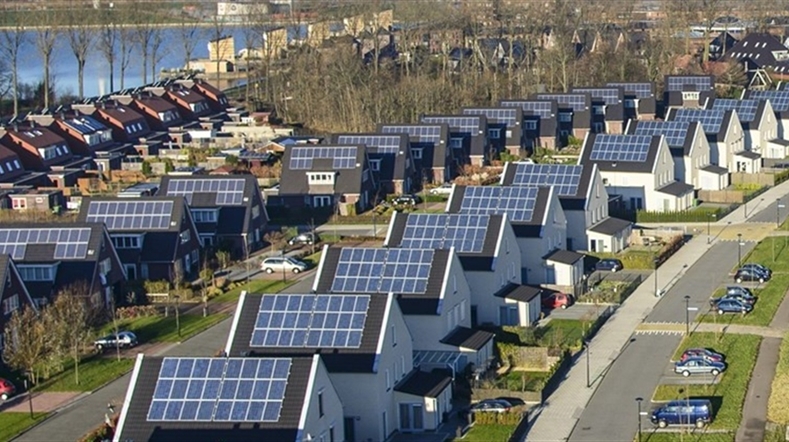
GEAR@SME accelerates energy efficiency in SMEs
Status project
2020 - present
In cooperation with
Synyo, CertiMac, CSA, BEA, XXX, CCS, VNO-NCW, Servelect, TUCN, CIT
With more than 25 million small and medium-sized enterprises (SMEs) in Europe, this sector represents an enormous energy saving potential. SMEs are often prevented from implementing energy audits and energy savings measures due to lack of expertise, time and capital, and also lack of support. To address this issue, the European Commission has granted funding to the GEAR@SME project , which has started on 1 September 2020.
Under the leadership of TNO, the GEAR@SME project gathers a multidisciplinary team with a well-balanced distribution between research organizations, business services enterprises and multiplier organizations from six EU countries. More specifically, the consortium is composed of well-known research organisations (CIT, TNO and ENEA), innovative business services enterprises, experienced in the SME sector (BEA, CCS, CertiMac, Servelect and SYNYO), and multiplier organizations varying from branch associations (CLOK, CNA) to Chamber of Commerce Germany and university TUCN.
GEAR@SME approach
The GEAR@SME concept to address the uptake of energy efficiency measures in SMEs is unique in three respects: Firstly, we introduce the role of a Trusted Partner as a key player to bridge the gap between SMEs and the supply side. Secondly, we develop a local collective approach to energy efficiency in SMEs, based on geographic proximity (e.g. a business park). Thirdly, we put to practice the Multiple Benefits approach to energy efficiency in SMEs.
An important milestone is reached: the launch of the online portal
The new EU-wide Online Portal energyefficientsme.eu opened in June ’22. Companies can get free support to save energy and protect the climate.
The portal was set up as part of the Horizon 2020 project GEAR@SME project and will remain in place beyond the project period. Companies will find very concrete tools and assistance to download, but also a forum where they can ask questions and exchange information with other companies and energy service providers.
The portal combines different ways of support for SMEs.
Under the "Implement" tab, users who want to support SMEs in energy savings can find training materials. For SMEs, there are tools for the concrete implementation of energy efficiency measures in their business, such as for monitoring, for carrying out an energy scan on a business park or templates for contracts with energy service providers. In addition, users can download 'best practices' that show which measures have which impact on a company. For example, you can read about the investment, payback period and savings resulting from the installation of a PV system. Under the 'Interact' tab, interested parties can find a country-specific discussion forum, for Germany, Romania, Austria, the Netherlands, Italy and Sweden.
"The launch of the portal comes just in time at a time when rising energy prices are putting a heavy burden on businesses," says consortium leader Karina Veum from Dutch project partner TNO, "We hope that our tools and advisory forums will help SMEs to better implement climate protection and energy saving measures in their companies."
These three ingredients are at the heart of a common methodology that is adaptable to any local situation across EU member states, which we will demonstrate in use cases in four different countries: Germany, Italy, the Netherlands, and Romania. By applying this approach to making SMEs more energy efficient, we expect to contribute to accelerating the energy transition. In GEAR@SME, attention is also paid to providing tailor-made solutions for different types of SMEs and making external financing more accessible.
As mentioned, the 'Trusted Partner' plays a key role in the GEAR@SME methodology. In Dutch business parks, this is often the park manager, in other European countries the role of Trusted Partner is fulfilled by different parties in different places. The methodology therefore takes into account local differences, which are identified in advance in the pilots. Within the project, Trusted Partners, SMEs and acceleration organizations (for example energy consultants and umbrella organizations) are trained to work with the method and to achieve maximum energy efficiency together. The roll-out of the method is supported by an online portal, which is also used to spread the lessons learned widely.
What does GEAR@SME expect to achieve?
The GEAR@SME project focuses on unlocking the energy savings potential in SMEs through tailored ‘activating-organising-enabling’ activities. Four business parks will be targeted in the project through which the GEAR@SME team will contact approximately 800 SMEs. The project aims to activate at least 50% of the total SMEs in the business parks/industrial areas. With the help of dedicated ‘enabling and organising’ activities, the project aims to get at least 50% of the activated SMEs to commit to actually implementing energy efficiency measures, either through a collective approach or individually. This will result in 200 SMEs taking energy efficiency measures within the project lifetime, with a potential primary energy savings of 11.2 GWh/year, and associated investment costs of around €4 Mill.
A wider implementation of the GEAR@SME methodology is foreseen beyond the scope of the project. The further roll out will be addressed in an exploitation strategy, building on lessons learned in the use cases. The aim of the further exploitation is to provide a framework in which the Trusted Partner plays a key role in activating-organising-enabling SMEs to take energy efficiency measures, with replication to at least 4 other EU countries, resulting in additional energy savings.
GEAR@SME complements ongoing work in The Netherlands
The Netherlands has approximately 3,500 business parks, where the majority of Dutch SMEs are located. Business parks are therefore an important engine of the economy. The savings potential at these locations is also great. GEAR@SME will complement the work TNO is already doing with partners in the BE+ Foundation, aiming to make 250 business parks energy positive. Already 35 business parks have joined this foundation.
BE+ supports SME collectives with practical advice, quick scans, collective financing and regularly organizes meetings where they exchange experiences and jointly shape initiatives. In this context, various methodologies and tools have been developed to support business associations and park managers in making their site more sustainable. Making 250 business parks more sustainable will result in a 2.2 Mton CO2 reduction through energy savings and sustainable energy production, according to figures from the Netherlands Enterprise Agency (RVO.nl). This contributes to various objectives of the Dutch Climate Agreement. For example, the sector target of 3.4 Mton CO2 savings for the built environment. In addition, it contributes to the goal of sustainably generating 35 TWh of our energy needs on land by 2030.
Get inspired
Making business parks more sustainable

Living without gas: drivers and barriers

Succesful neighbourhood approach: motivate residents


Business park sustainability needs momentum






